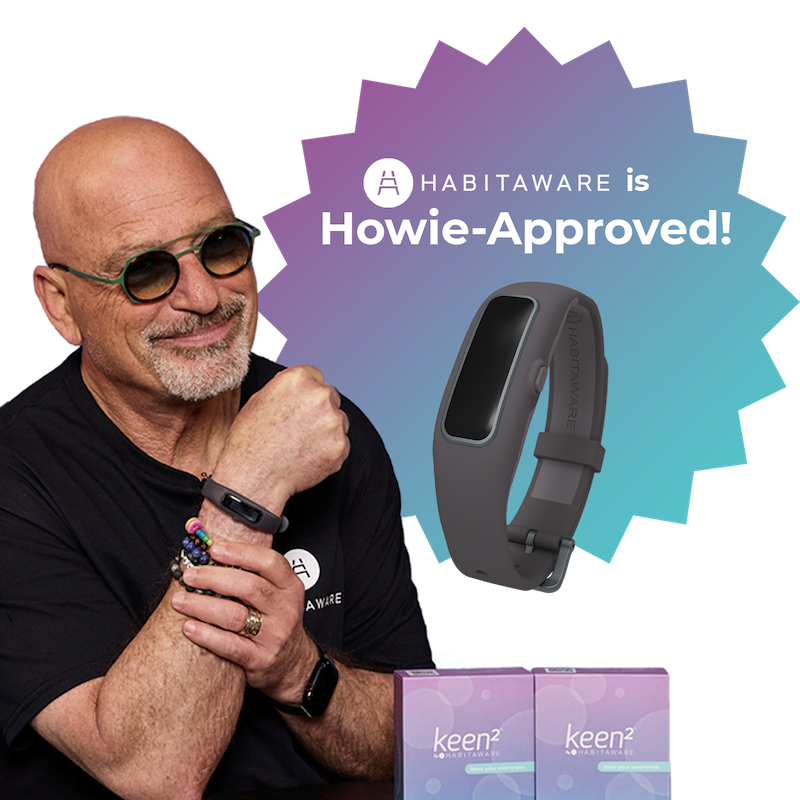Here’s our interview with Liz Atkin, visual artist and mental health advocate based in London, UK.

I didn’t meet Liz first, I met her artwork, online, and immediately was drawn to it. Then I met her at the 2016 TLC Conference in Dallas, TX and immediately was drawn to her! I knew what Liz looked like, because social media, and ran into her at a bus stop! She was heading to search for beauty in Dallas, while I was heading back from the print shop. I walked past and thought “Oh wow! That’s Liz Atkin…she’s keynoting the TLC Conference. Soooo cool.” & Then, I was like, “Wait, I should introduce myself!” & I’m glad I did. She is a funny & heart warming soul with so much creativity to give to this world!
I am grateful to know her and totally wish I was a kid living in her neighborhood to take her art classes!
~Aneela
Here’s more about Liz in her own words:
Q: What’s your BFRB story?
“I have Dermatillomania – Compulsive Skin Picking, I’ve also suffered from Severe Depression and Chronic Anxiety.
I am a visual artist based in London. Physicality underpins a creative practice with my skin as a primary source for corporeal artwork and imaginative transformation. Compulsive Skin Picking dominated my life for more than 20 years, but through a background in dance and theatre, I confronted the condition to harness creative repair and recovery. I create intimate artworks, photographs, and performances reimagining the body-focused repetitive behavior of skin picking. I have exhibited in the UK, Australia, USA, Singapore, and Japan.
< See how our Keen family is confronting Dermatillomania & Trichotillomania: Our Awareness Bracelet Reviews >
“I’m widely known for my #CompulsiveCharcoal series of free drawings on discarded newspapers for commuters on public transport around the world. #CompulsiveCharcoal has featured on Huffington Post, Mashable, Channel News Asia, iNewspaper, The Metro, London Live, Buzzfeed, The Londonist and BBC Radio London. I have created my free drawings in London, the New York Subway System, and Singapore’s public transport system, so far I have given away in excess of 15,000 free drawings.
As a freelance creative practitioner, I work in therapeutic settings, schools, galleries, prisons, hospitals and arts venues, teaching visual art, messy play for toddlers, set design, movement, and drama. I work across all ages, from early years to adults.
“Our brain is the most important organ to manage our bodies and our lives, but when it ‘goes wrong’ or we have problems that are to do with our mental health, it’s stigmatized. That is something that needs to change.”
The discrimination of skin picking I’d experience was very subtle, I would see someone’s gaze catch sight of a wound or scar on my body and the shame and guilt would flood through me because I’d think they’d know what it was. Sadly, I experienced a lot more discrimination when I got ill with depression and anxiety. I had almost a year off work, and I lost a lot of friends and colleagues at the time. People I’d known a long time, left my life. That was extremely painful. But as I started to get better I realized I could voice things to make a small change for that. Recovery has given me the chance to advocate for mental health and work to reduce the stigma surrounding these conditions. Our brain is the most important organ to manage our bodies and our lives, but when it ‘goes wrong’ or we have problems that are to do with our mental health, it’s stigmatized. That is something that needs to change.

I had no idea what an incredible tool compulsive charcoal-ing would be to stop my compulsive skin picking, but it’s become the greatest solution. Someone here said the drawings I create even look very itchy! They are very quick, each one takes one minute, the speed of the mark-making is absolutely akin to the skin picking.

Since I don’t really need the drawings, I just need to do them, I began handing them to curious passengers who’d caught my eye and obviously wondered why I was furiously drawing at that speed in the middle of a packed carriage. An act of kindness for someone? Yes, but I also realized that many people would chat to me, little conversations about mental health were happening with strangers about these drawings. I do a huge number, up to 60 a day. I realized that for every drawing, this was a moment of connection, of advocacy for mental health, and a chance to let others know I am drawing because of Compulsive Skin Picking.”
Q: What’s your treatment for skin picking?
“Art!! It gets in there without language and provides a channel to express some of the core difficult stuff about living with challenging mental health issues. It can be very hard to put into words what it feels like to live with Skin Picking. But I can perhaps find a way to express this through a photograph, and that becomes very cathartic. Art is a powerful tool for us to also focus our minds — I find it to be extremely mindful, soothing, evocative and emotional, all in the same moment! That’s a terrific thing, and it has become something I am passionate about offering to others. Teaching has become a very important part of my life now. I explore the body-focused repetitive behavior of skin picking in my art practice and it’s become a daily way to recover. I work with textural materials like latex, clay, acrylic paint to transform the skin. And much more recently, drawing has become one of the best ways of all to channel the illness away from my body… drawing is a tool for me to manage the physical urges of disorder every day. Art is now my biggest tool for recovery.
< See how Keen can help you focus your mind too! Order your smart habit tracker today! >

Much of this has been a happy accident. I didn’t train as an artist, I certainly had no idea how transformative art was going to be in my life. Much of it has evolved organically through the act of doing it. I only started drawing 2 years ago — and I don’t think it was a remedy a doctor might have suggested for skin picking… but that’s where the other part of my life has become important. Because of the transformative experiences I have had with art, it is now a fully connected part of my life. I teach art and drama in hospitals, hospices, prisons, universities and schools, approaching creativity as a hugely important tool to help others.
I speak out about Compulsive Skin Picking every single day, on the train when I’m drawing, on social media, whenever I am asked to speak or present about my work. I am making public the thing that tormented me in private for more than 20 years, and each day I encounter so many people who suffer in silence and feels utterly alone with this illness. It’s very common – 1 in 25 may suffer, and to be honest some days I meet a number of people who quietly identify with me and thank me for talking about it. If one person that day goes home and googles Skin Picking and seeks help, then job done! Normalizing it and sharing my experience with others is a very important part of reaching out with compassion and that keeps me well.
I love so much that sharing your BFRB has helped you find wellness!
Can’t wait to meet again in person.
love + strength + awareness,
Aneela


